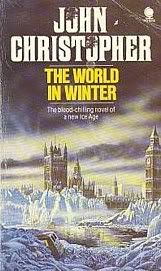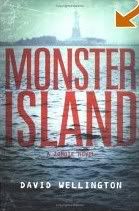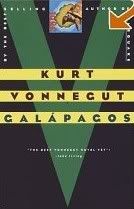 Day of the Triffids had been on my must read list for an exceptionally long time because I remembered watching the film as a child and being utterly terrified (keep in mind that I was one of the only children not to freak out at The Dark Crystal). When I found out that it was based on a book I just had to read it- so when I discovered it at the second hand bookstore a few weeks ago I just couldn’t pass up the opportunity.
Day of the Triffids had been on my must read list for an exceptionally long time because I remembered watching the film as a child and being utterly terrified (keep in mind that I was one of the only children not to freak out at The Dark Crystal). When I found out that it was based on a book I just had to read it- so when I discovered it at the second hand bookstore a few weeks ago I just couldn’t pass up the opportunity.I think to anyone who has read anything that I have written, especially about the subjects of books, should know that I have a thing for post apocalyptic novels written in the 50’s, 60’s, 70’s and on the rare occasion the 80’s. I always thought that it was just because of my obsession with the end of the world, the desolation of humanity and my fear that even though at present we are the dominant species we will one day become obsolete. And in part it may be that- but following on the heels of The World in Winter it has become clear to me that the thing that I like about these stories is that they are character driven. It isn’t about the story, it isn’t about how the world ends. It is about how people survive and act when all governing bodies are removed and people are left to their own devices. Whether they sink or swim. Whether they become savages or try and remain civilized. It is about how the author thinks people will cope when the only people they have to rely on is themselves.
I fully understand how the triffids terrified me so much- they are barbarous plants- but they are merely plot devices and secondary to the characters.
Wyndham makes some fabulous points about science (especially about satellites, which I have always found a little creepy and invasive) and the human condition. I especially liked his attack on people thinking that the US was going to come and save the day- fifty years later people are still holding onto that same ineffectual thread.
When I got to the end I wanted to read me, I wanted Elspeth’s History of the Colony to be a sequel.
Of course parts of it are outmoded, such as gender perceptions (though Coker’s soliloquy about feminism was pretty close on the mark) but Wyndham manages to squeak through cleanly by pointing out the stupidity in such modesty or habits and foreseeing much of what would happen to certain movements.
And his references to a specific war could have been more general to allow people to relate better to it later on, allowing for a change in the enemy of future generations.
Still, it was thoroughly enjoyable.
Labels: End of the World, John Wyndham

 I don’t know where to start with this novel- it is exactly the sort of thing that I thoroughly enjoy reading. The basic premise is to due to natural solar fluctuations a new ice age has dawned on the northern hemisphere (keep in mind this was released in 1962, many, many, many years prior to the conception of that piece of tripe that you are comparing it to). This isn’t so much about the disaster that it wreaks on the world, but more about the people and how they react to it and one another. This is the sort of book that I would have loved to have studied when I was at university (and even now if I could think of a viable reason other than desire). It is rich in meaning, exploring gender roles, racism, politics, colonization, loyalty, customs, social status and a variety of other themes.
I don’t know where to start with this novel- it is exactly the sort of thing that I thoroughly enjoy reading. The basic premise is to due to natural solar fluctuations a new ice age has dawned on the northern hemisphere (keep in mind this was released in 1962, many, many, many years prior to the conception of that piece of tripe that you are comparing it to). This isn’t so much about the disaster that it wreaks on the world, but more about the people and how they react to it and one another. This is the sort of book that I would have loved to have studied when I was at university (and even now if I could think of a viable reason other than desire). It is rich in meaning, exploring gender roles, racism, politics, colonization, loyalty, customs, social status and a variety of other themes. I ordered a copy of
I ordered a copy of 